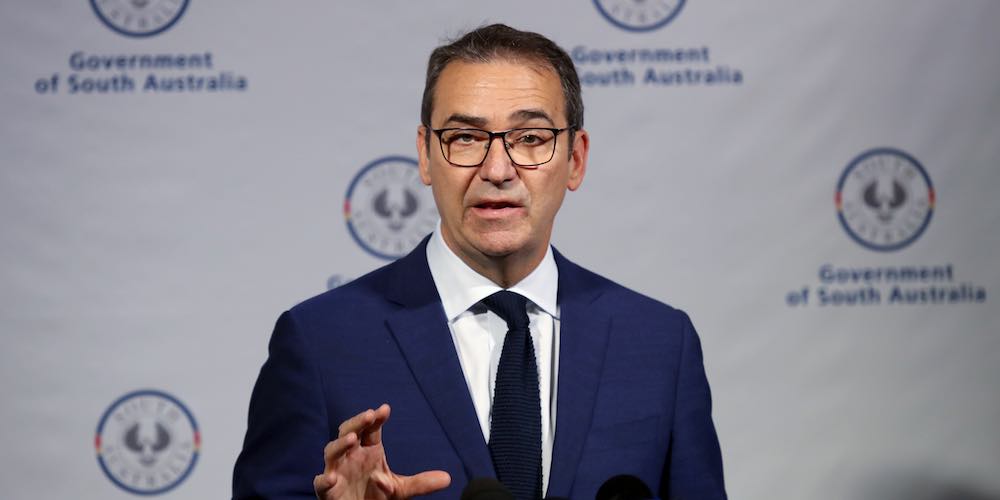South Australia’s Premier Steven Marshall, joined by SA Minister for Health Stephen Wade and SA Pathology clinical service director Dr Tom Dodd, discussed the state’s current COVID-19 situation.
Mr Marshall was pleased to announce a new process of testing which will target specific occupational groups.
South Australia’s COVID-19 testing regime is being bolstered with focussed testing for specific cohorts of the population.
The testing cohorts identified in the Active Testing Surveillance Framework include health care workers, residential aged care workers, transport workers, homeless persons, prison inmates, and seasonal workers.
Premier Steven Marshall said boosting our testing regime is the next step the Government’s strong plan to keep South Australia safe and strong.
“Extensive testing for COVID-19 has been a hallmark of South Australia’s strong, decisive response to the threat posed by the coronavirus pandemic.
“To safely ease restrictions as soon as possible we must have the confidence we can identify cases and quickly isolate the virus.
“We do not want to put South Australian businesses in the difficult position of opening up, and only having to close again because of a second wave of COVID-19 infections.”
There has been no reduction in the number of daily tests, and over the last week, clinics recorded around 1500 per day.
Minister for Health and Wellbeing Stephen Wade South Australia’s said the Active Testing Surveillance Framework will enhance the already world-class testing focussed on symptomatic people to enhance surveillance of specific occupational groups.
“South Australia is leading the nation with COVID-19 surveillance and we know timely testing, effective contact tracing and quarantining have been vital in the great results we have seen in South Australia so far,” Minister Wade said.
“As we move into the suppression phase of our pandemic response, by providing additional opportunities for testing specific groups who either work with vulnerable populations or who may have less access to COVID-19 testing clinics, we will be able to further protect the community.
“While there are currently no active cases of COVID-19 in the state, it is extremely important that we continue to plan for every possible outcome of the virus.
“We are not going to rest on our laurels. Through enhanced testing of specific groups, we will be able to implement in a timely manner any necessary control methods, including isolating cases and infection control procedures.
“Testing of homeless people has commenced.
“The next priority for active surveillance testing will be the healthcare and aged care workforce.
“SA Pathology has the capacity and capabilities to support the continued testing of symptomatic people as well as targeted surveillance testing, so it is the right time for us to commence this testing regime.
“In addition, private pathology is increasing its testing capabilities within South Australia. We are working with them to maximise the health outcomes for South Australians.”
SA Pathology’s Executive Director of Clinical Services, Dr Tom Dodd, said maintaining a high testing rate of every South Australian regardless of the level of symptoms is essential to prevent any large outbreaks within the community.
“It is vital we randomly test people from different occupational or population cohorts to ensure we don’t have any unidentified community transmission that we aren’t aware of,” Dr Dodd said.
“South Australians have done a great job so far in getting themselves tested when showing any symptoms of COVID-19 and this is yet another way we can continue to help to stop the spread and not undo the good.”
A COVID-19 Surveillance Committee has been established to oversee the implementation of surveillance testing. The Committee includes the Chief Public Health Officer, Chief Medical Officer, a pathology expert and representatives from procurement and supply chain management, and Wellbeing SA.
The Committee will consult with private and public pathology providers to ensure testing capacity and capabilities throughout.
Work is underway to reach out to occupational groups to determine the best ways of implementation across the cohorts.
More to come.





















